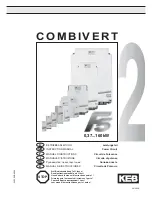
LT8330
10
8330fa
For more information
www.linear.com/LT8330
applicaTions inForMaTion
SETTING THE OUTPUT VOLTAGE
The output voltage is programmed with a resistor divider
from the output to the FBX pin. Choose the resistor values
for a positive output voltage according to:
R1 = R2
•
(V
OUT
/1.60V – 1)
Choose the resistor values for a negative output voltage
according to:
R1 = R2
•
(|V
OUT
|/0.80V – 1)
The locations of R1 and R2 are shown in the Block Dia-
gram. 1% resistors are recommended to maintain output
voltage accuracy.
Higher-value FBX divider resistors result in the lowest input
quiescent current and highest light-load efficiency. FBX
divider resistors R1 and R2 are usually in the range from
25k to 1M. Most applications use a phase-lead capacitor
from V
OUT
to FBX in combination with high-value FBX
divider resistors (see Compensation in the Applications
Information section).
SOFT-START
The LT8330 contains several features to limit peak switch
currents and output voltage (V
OUT
) overshoot during
start-up or recovery from a fault condition. The primary
purpose of these features is to prevent damage to external
components or the load.
High peak switch currents during start-up may occur in
switching regulators. Since V
OUT
is far from its final value,
the feedback loop is saturated and the regulator tries to
charge the output capacitor as quickly as possible, resulting
in large peak currents. A large surge current may cause
inductor saturation or power switch failure.
The LT8330 addresses this mechanism with an internal
soft-start function. As shown in the Block Diagram, the
soft-start function controls the ramp of the power switch
current by controlling the ramp of VC through M2. This
allows the output capacitor to be charged gradually toward
its final value while limiting the start-up peak currents.
Figure 3 shows the output voltage and supply current for
the first page Typical Application. It can be seen that both
the output voltage and supply current come up gradually.
Figure 3. Soft-Start Waveforms
INTV
CC
undervoltage (INTV
CC
< 2.5V) and/or thermal
lockout (T
J
> 170°C) will immediately prevent switching,
will reset the internal soft-start function and will pull down
VC. Once all faults are removed, the LT8330 will soft-start
VC and hence inductor peak current.
FREQUENCY FOLDBACK
During start-up or fault conditions in which V
OUT
is very
low, extremely small duty cycles may be required to
maintain control of inductor peak current. The minimum
on-time limitation of the power switch might prevent these
low duty cycles from being achievable. In this scenario
inductor current rise will exceed inductor current fall during
each cycle, causing inductor current to ‘walk up’ beyond
the switch current limit. The LT8330 provides protection
from this by folding back switching frequency whenever
FBX pin is close to GND (low V
OUT
levels). This frequency
foldback provides a larger switch-off time, allowing inductor
current to fall enough each cycle (see Normalized Switch-
ing Frequency vs FBX Voltage in the Typical Performance
Characteristics section).
THERMAL LOCKOUT
If the LT8330 die temperature reaches 170°C (typical),
the part will stop switching and go into thermal lockout.
When the die temperature has dropped by 5°C (nominal),
the part will resume switching with a soft-started inductor
peak current.
500µs/DIV
I
L
500mA/DIV
V
OUT
20V/DIV
8330 F03










































